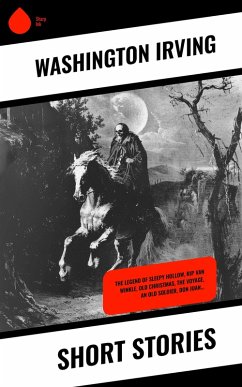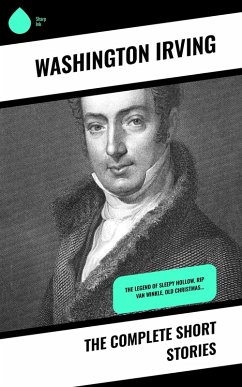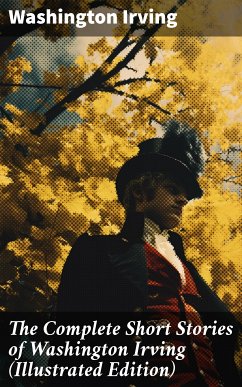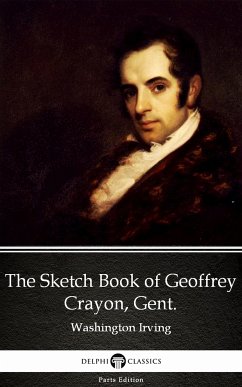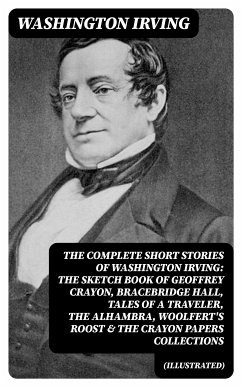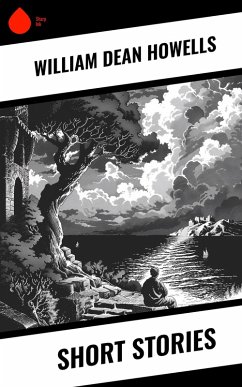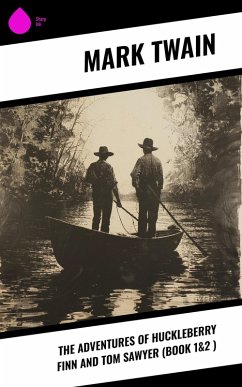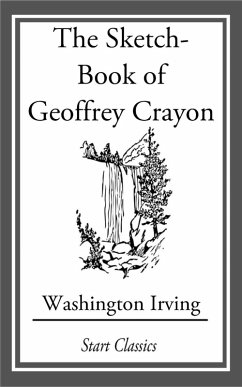
The Sketch Book of Geoffrey Crayon, Gent. (eBook, ePUB)
30+ Short Stories: The Legend of Sleepy Hollow, Rip Van Winkle, Old Christmas...
Versandkostenfrei!
Sofort per Download lieferbar
2,13 €
inkl. MwSt.
Weitere Ausgaben:

PAYBACK Punkte
0 °P sammeln!
In "The Sketch Book of Geoffrey Crayon, Gent.", Washington Irving weaves a captivating tapestry of essays, sketches, and short stories that reflect the rich tapestry of early 19th-century American and European life. Through the lens of the fictional narrator Geoffrey Crayon, Irving explores themes ranging from nostalgia and the American identity to the nature of storytelling itself. This compilation, marked by its lyrical prose and a blend of humor and pathos, stands as a precursor to modern travel literature and short story collections, offering readers a glimpse into the cultural intersectio...
In "The Sketch Book of Geoffrey Crayon, Gent.", Washington Irving weaves a captivating tapestry of essays, sketches, and short stories that reflect the rich tapestry of early 19th-century American and European life. Through the lens of the fictional narrator Geoffrey Crayon, Irving explores themes ranging from nostalgia and the American identity to the nature of storytelling itself. This compilation, marked by its lyrical prose and a blend of humor and pathos, stands as a precursor to modern travel literature and short story collections, offering readers a glimpse into the cultural intersections of the time, particularly the burgeoning American consciousness in a post-Revolutionary world. Irving, often hailed as the father of American literature, drew upon his own experiences as a traveler, his European sojourns, and his keen observational skills to craft these sketches. His upbringing in New York and exposure to both American and European cultures allowed him to navigate and articulate a unique literary voice that bridged transatlantic sensibilities. Inspired by the Romantic movement, Irving captured the essence of both the idyllic and the grotesque, reflecting the diverse societal landscapes of his time. This book is highly recommended for anyone interested in the origins of American storytelling and the exploration of cultural identity. Irving's deft combination of humor, introspection, and social commentary promises to captivate readers, appealing to both literary scholars and casual readers alike, making it a quintessential read in the canon of American literature.
Dieser Download kann aus rechtlichen Gründen nur mit Rechnungsadresse in A, B, BG, CY, CZ, D, DK, EW, E, FIN, F, GR, HR, H, IRL, I, LT, L, LR, M, NL, PL, P, R, S, SLO, SK ausgeliefert werden.




